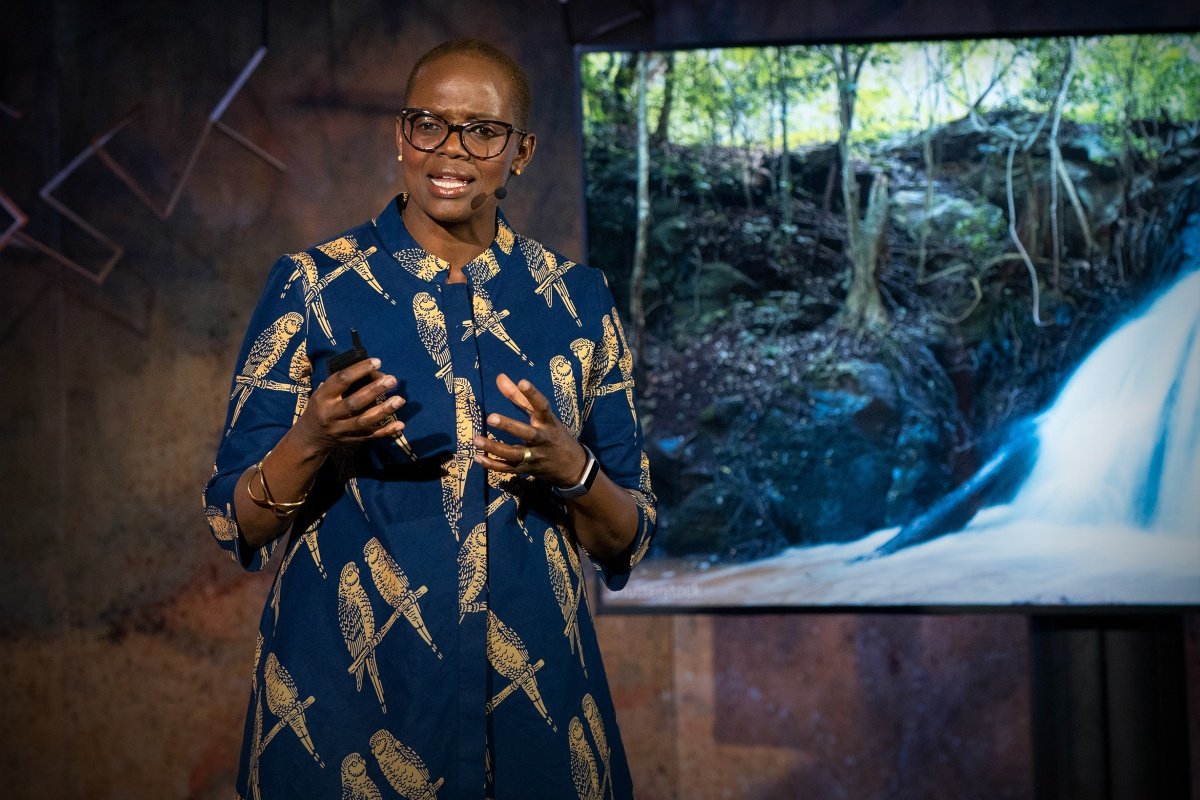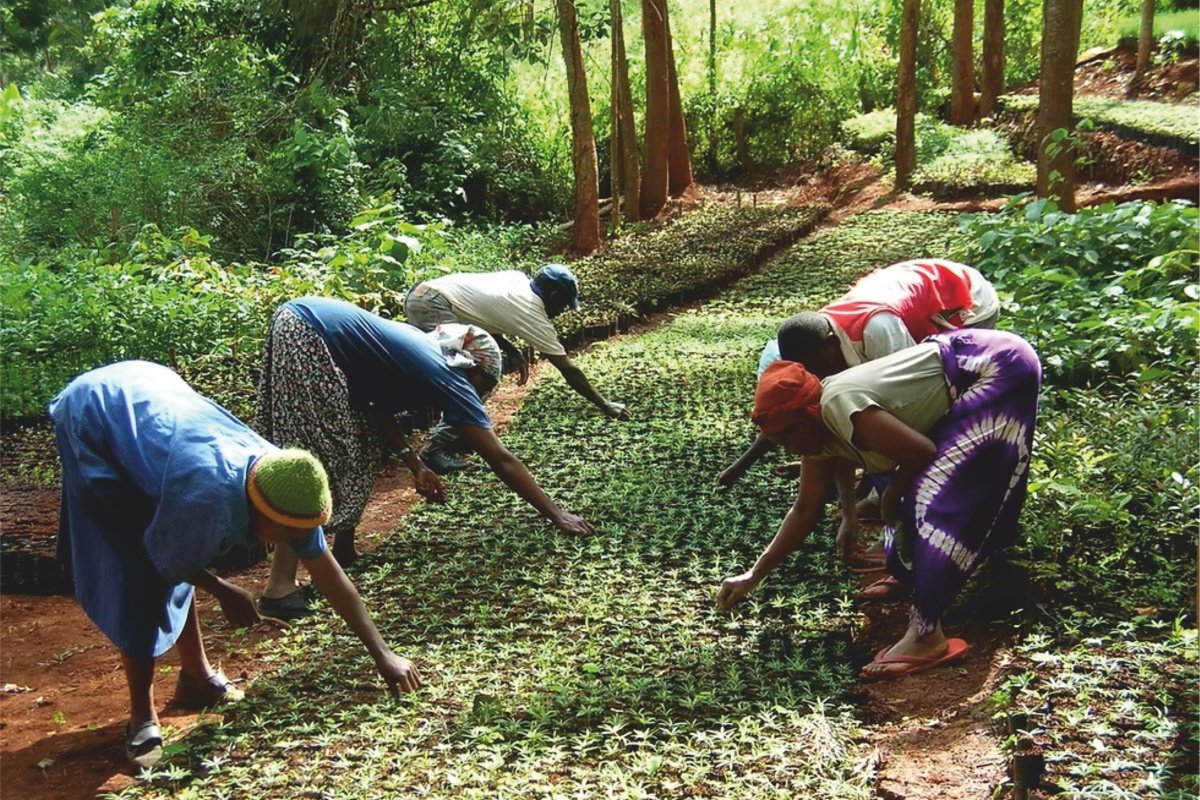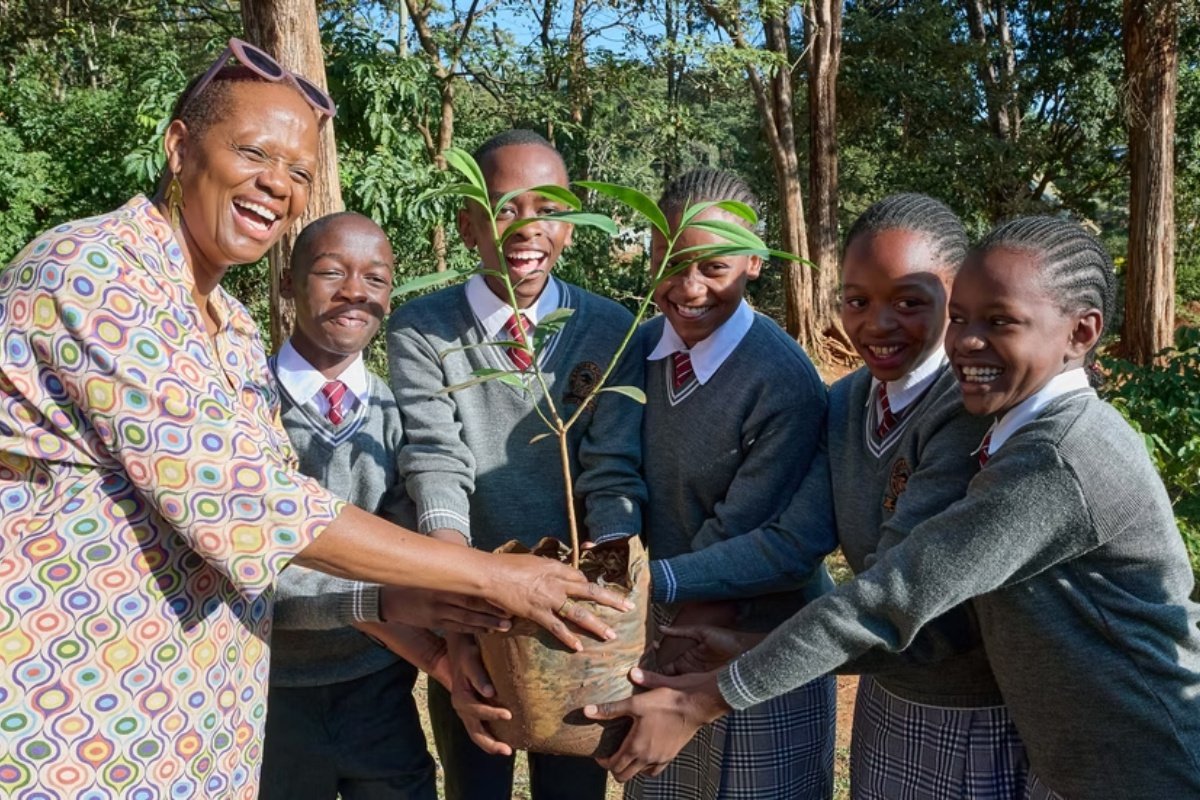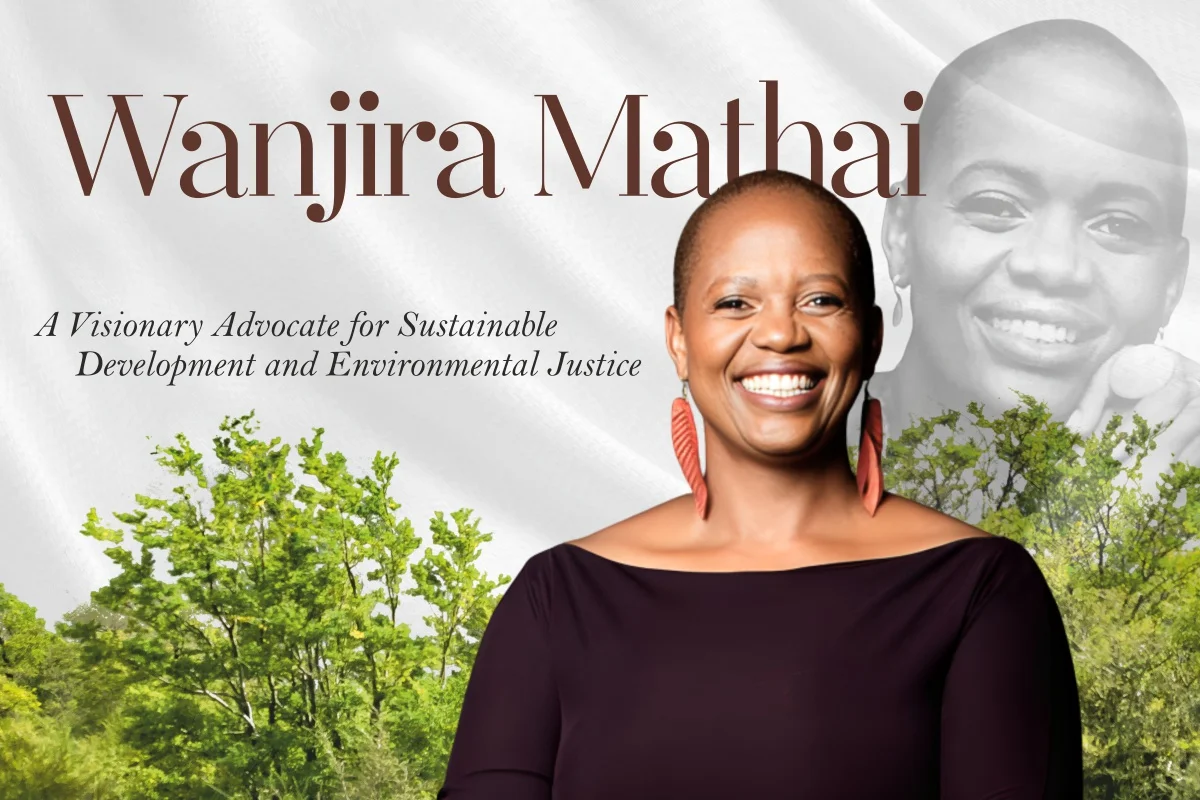Wanjira Mathai, a renowned environmental activist, leader, and advocate, has made significant strides in her efforts to address environmental degradation, climate change, and social inequality, while promoting sustainable development and community empowerment. Drawing inspiration from her mother, the late Wangari Maathai—a Nobel Peace Prize laureate and founder of the Green Belt Movement—Wanjira has carried forward the mission of environmental stewardship and social justice in her own unique and impactful way.
Born in 1971 in Nairobi, Kenya, Wanjira Mathai is an environmental advocate, an expert on sustainable development, and a global champion for women’s rights and empowerment. Her life’s work revolves around the intersection of climate action, women’s empowerment, and social equality, with a particular focus on addressing the disproportionate effects of climate change on marginalized communities. Wanjira’s professional journey and advocacy reflect an unwavering commitment to shaping a more sustainable and equitable future for both the environment and humanity.
Early Life and Influences
Wanjira Mathai’s upbringing was deeply shaped by her mother, Wangari Maathai, who remains one of the most influential environmental leaders in history. Wangari Maathai’s advocacy for the environment, women’s rights, and peace left an indelible mark on Wanjira’s worldview. As a child, Wanjira witnessed her mother’s courage, passion, and dedication to tackling complex environmental issues. She also witnessed the transformative power of grassroots movements led by women, many of whom were empowered through the Green Belt Movement.

Wanjira’s father, the late Professor Muta Maathai, was a prominent academic and professor, and Wanjira’s family environment was one that nurtured critical thinking, education, and a deep appreciation for the interconnectedness of nature and society. From a young age, Wanjira was exposed to conversations about social justice, environmental conservation, and the importance of collective action. This environment not only fostered a deep connection to her Kenyan roots but also instilled in her a sense of responsibility toward advocating for the betterment of society and the protection of the planet.
Her education played a crucial role in shaping her vision for the future. Wanjira pursued her undergraduate studies in the United States, obtaining a degree in political science from the University of Pittsburg. Afterward, she furthered her studies at the prestigious University of Edinburgh, obtaining a Master’s in Environmental Management. Through her academic experiences, she was able to deepen her understanding of the global issues that affect the environment, development, and society at large.
Environmental Leadership and Advocacy
Wanjira Mathai’s work as an environmental leader began in earnest in the early 2000s when she joined the Green Belt Movement, an organization founded by her mother in 1977. The movement was dedicated to promoting environmental conservation, sustainable development, and the empowerment of women through tree planting and environmental education. Following in her mother’s footsteps, Wanjira took on leadership roles within the movement, helping to expand its reach and influence globally.
Her work with the Green Belt Movement was instrumental in shifting the conversation on climate change from one of global policy-making to a more localized, grassroots level. Wanjira’s approach to environmental conservation emphasized the importance of community-led initiatives and the critical role that women play in sustainable development. Through her advocacy, she championed the idea that women are not only victims of environmental degradation but also powerful agents of change who can drive innovative solutions to climate-related challenges.
Her commitment to promoting the rights and empowerment of women in relation to environmental issues is evident in her leadership of various initiatives aimed at advancing gender equality in the context of sustainable development. Wanjira’s work centers around the idea that environmental justice cannot be achieved without social justice, and vice versa. This intersectional approach highlights the deep connections between environmental conservation, human rights, and poverty alleviation, especially for communities in the Global South that bear the brunt of climate change.
Global Leadership and Advocacy for Climate Action
Wanjira Mathai’s leadership extends well beyond the Green Belt Movement. As a passionate advocate for climate action, she has become a global voice for environmental justice, representing Kenya and the broader African continent in various international forums on climate change and sustainable development.
In 2018, Wanjira was appointed as the Vice President for Global Partnerships at the World Resources Institute (WRI), a leading global environmental and sustainable development research organization. At WRI, she has played a pivotal role in shaping the organization’s global initiatives focused on climate change mitigation, resilience, and the development of equitable, low-carbon solutions. Through her work at WRI, Wanjira has sought to amplify the voices of communities most affected by climate change, including women, youth, and indigenous groups, and ensure that their needs and perspectives are considered in international climate negotiations and policy-making.
In addition to her role at WRI, Wanjira is an active member of several influential international platforms that promote sustainable development, including the United Nations Framework Convention on Climate Change (UNFCCC) and the Global Covenant of Mayors for Climate and Energy. Her participation in these forums underscores her commitment to fostering a just transition to a sustainable global economy, one that prioritizes both environmental integrity and human well-being.
Her work has earned her recognition and accolades on the global stage. In 2021, Wanjira was named one of TIME magazine’s “Next Generation Leaders,” a testament to her growing influence in the fight for a greener, more equitable future. Her voice is increasingly recognized not only in environmental circles but also in broader conversations about policy and development, where she continues to push for systemic change that addresses the root causes of environmental degradation, social inequality, and climate injustice.
The Role of Women in Environmental Movements
One of the core tenets of Wanjira Mathai’s work is the critical role of women in driving environmental change. Growing up with the legacy of her mother’s environmental activism, Wanjira is keenly aware of how women’s agency can significantly influence environmental outcomes. As women are often at the forefront of the fight against deforestation, land degradation, and food insecurity, empowering women to become leaders in environmental initiatives is central to her advocacy.

Through her work, Wanjira has empowered thousands of women to become environmental advocates and activists, working to restore ecosystems and promote sustainability in their communities. She believes that climate action must be inclusive and take into account the experiences, challenges, and expertise of women, particularly those from marginalized communities. Women, she argues, are not only the most vulnerable to the impacts of climate change but are also some of the most innovative and resilient agents of change.
Moreover, Wanjira’s advocacy for women in the context of climate change is rooted in her belief that the global response to the climate crisis must be one of solidarity and partnership, not division. She is a staunch advocate for ensuring that the voices of African women and other marginalized groups are heard in decision-making processes related to climate action. Wanjira’s work seeks to ensure that women and girls have equal access to education, leadership opportunities, and resources to protect and manage their environments.
Looking Ahead: A Vision for Sustainable Development
As Wanjira Mathai continues to build upon her mother’s legacy, she remains deeply focused on creating an inclusive and sustainable future. Her vision for the future of environmentalism is one that recognizes the interconnectedness of people, planet, and prosperity. A future in which communities are empowered to take collective action, women lead efforts toward climate resilience, and global systems work in harmony to address the climate crisis.

At the heart of Wanjira’s work is a belief that true environmental sustainability can only be achieved when people and communities are at the center of solutions. Through her leadership, advocacy, and tireless efforts, Wanjira Mathai remains a powerful force for change, inspiring countless individuals around the world to work toward a future where sustainability, equity, and justice are prioritized in the face of unprecedented global challenges.
Wanjira Mathai’s tireless commitment to the environment, her advocacy for women and marginalized communities, and her vision for a just and sustainable world ensure that her work will continue to have a lasting impact for generations to come. Whether through her role at the World Resources Institute or her grassroots engagement with local communities, she is helping to shape a world where environmental conservation and social justice go hand in hand.








